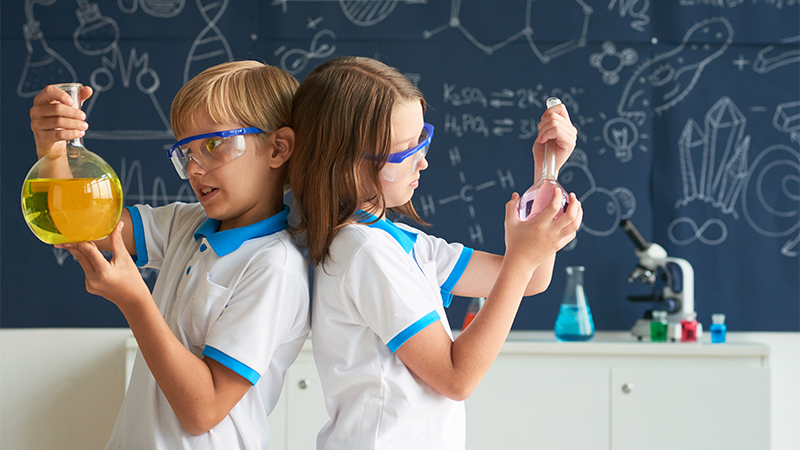As parents, you want the best for your children. You seek an environment that nurtures their growth and learning. Science education plays a vital role in this journey, especially in early childhood. In our fast-changing world, understanding science is important for making smart choices. This blog discusses the benefits of science education for young minds and how it can shape their future.
Why Science Education is Important
Encouraging Curiosity and Creativity
Children are naturally curious. They ask questions about the world around them, and this curiosity is the foundation of scientific thinking. By incorporating science education into their daily routines, you can encourage your child to ask questions and seek answers. These foster their creativity and critical thinking.
Building Critical Thinking and Problem-Solving Skills
Science teaches children how to think critically and solve problems. When faced with challenges, they learn to analyse situations, test hypotheses, and find solutions. These skills are not only applicable in scientific endeavours but also in everyday life. As your child navigates through challenges, they develop resilience and adaptability of Improving Confidence
When children engage in science experiments and activities, they gain hands-on experience that boosts their confidence. Completing a project or understanding a new concept makes them proud. This sense of accomplishment is vital for their overall development and self-esteem.
Increasing Awareness
In today’s world, understanding scientific concepts is essential. By introducing your child to science education, you help them develop awareness of important topics, such as health, safety, and technology. This awareness empowers them to make informed choices as they grow.
Fostering a Love of Learning
Science is all about exploration and discovery. By integrating science learning into their early years, you create a joyful learning experience that instills a passion for knowledge. Children who love learning are more likely to pursue education actively throughout their lives.
Real World Relevance and Responsibility Science provides a tangible connection to the world around us, helping children understand the relevance of what they learn. Children can relate scientific concepts to everyday experiences such as environmental issues or medical advancements, providing a lens through which they can understand and engage with the world around them.. Science education fosters a sense of responsibility towards nature and encourages eco-friendly practices. By teaching your child about ecosystems, sustainability, and conservation, you’re preparing them to be responsible global citizens.
Encouraging Teamwork & Collaboration
Science often involves teamwork. Working on experiments or projects with peers helps children learn to collaborate effectively. They develop communication skills and understand the value of diverse perspectives. These skills are invaluable in a world that increasingly relies on teamwork.
Conclusion
At Chrysalis Kids, we believe that learning should be fun and engaging. Children that engage in science education from the early years are often better prepared for their formal schooling years. They are able to enter a classroom with a curiosity about the world, basic problem-solving abilities and an eagerness to explore and question. These attributes not only contribute to academic success but also lay a strong groundwork for future achievements. Many activities that involve science are often conducted in a group environment fostering teamwork and collaboration. Children therefore learn to work together, communicate and share ideas as they work towards a common goal. These collaborative experiences not only enhance social skills but also prepare children for schooling years. If you want your child to experience the benefits of science education and be part of a community that prioritises holistic development, consider enrolling them in our preschool. Explore our programs and discover why we are among the top nursery schools in Bangalore.
Frequently Asked Questions (FAQs)
1.What is the best age to introduce science to kids?
The best age to introduce science is between 3 to 5 years. At this stage, children are naturally curious and eager to explore, making it ideal for hands-on learning and discovery.
2.Can science activities be done at home?
Yes, science activities can easily be done at home. Simple experiments like mixing colours, growing plants, or exploring magnets can spark curiosity and make learning fun for your child.
3.What are the development benefits of studying science in early childhood?
Studying science in early childhood boosts critical thinking, problem-solving, and curiosity. It builds confidence, fosters teamwork, and helps children understand the world around them in a fun way.
